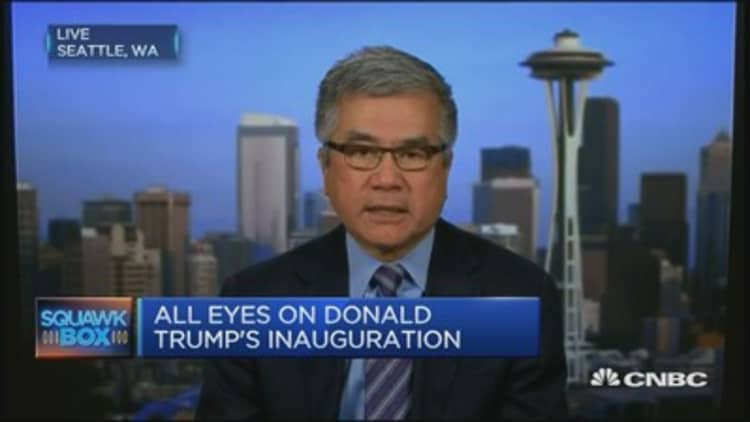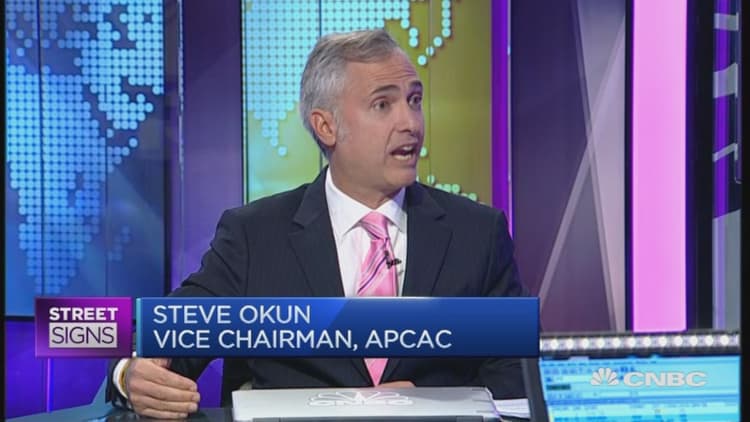Boeing aircraft and U.S. soybeans may be among U.S. goods targeted by China if bilateral trade tensions escalate and Beijing retaliates against U.S. tariffs threatened by president-elect Donald Trump's administration.
Capital goods - including aircraft manufactured by Boeing, turbines for power generation and transportation equipment - are an 'obvious candidate' for retaliation, wrote Eurasia Group analysts Evan Madeiros and Michael Hirson in a report on January 18.
"Beijing will target sectors it believes will resonate politically with the Trump team, including sectors that touch Trump's political base," the analysts wrote.
Beijing would approach alternative suppliers in Latin America for agricultural goods and in Europe for commercial aircraft should trade relations with the U.S. sour, former U.S. ambassador to China Gary Locke told CNBC on Friday.
"Chinese airlines do not have to buy Boeing planes, they can buy Airbus," Locke said. "The list goes on and on, and that will cost American jobs, good paying jobs."

Steven R. Okun, director of public affairs at the American Chamber in Commerce in Singapore said U.S. businesses exposed to China will lobby hard against a hawkish position on trade, arguing it would threaten, not protect U.S. jobs.
"Every company should be doing something to show what the tie-ins are between trade and job growth in the U.S.," Okun said. "When I was at UPS, we did an economic study showing access to China increased employment in the U.S. For every 40 daily international packages processed in the UPS system, that would create another incremental UPS job, most likely in the U.S.," Okun said.
Okun added: "If you want to make in and hire in America, you've got to sell America outside the borders as well."
If that message fails to resonate, U.S. agricultural exports to China may be in the firing line should a protectionist rhetoric spiral into an outright trade war.
China may have already taken pre-emptive action. Beijing increased punitive tariffs on January 12th on imports of a U.S. animal feed ingredient known as distillers' dried grains (DDGS) from levels first proposed last year. China accounts for over 50% of U.S. DDGs exports and annual exports are worth $2 billion.

"DDGs (prepared animal food) fall right into the sectors we highlighted as potential retaliation targets by China, should the U.S. initiate a trade war," Deutsche Bank's chief China economist Zhiwei Zhang wrote in a report a day after China increased the tariffs.
Though Deutsche said it viewed a large-scale U.S.-China trade war "as a risk scenario," the bank said there were "indications that the chance of such risk materializing is on the rise."
Ultimately, many believe there is far too much at stake in Asia's growing economies for the U.S. not to be engaged in the region.
"Asia's throwing a growth party here and the U.S. can come and attend if it wants," said DBS chief economist David Carbon.
"It's not really going to be a lot of skin off Xi Jinping's nose if the U.S. doesn't," Carbon said.


